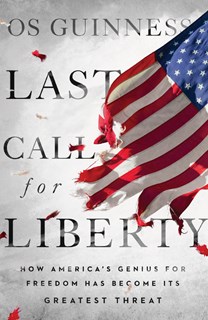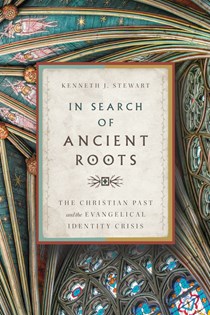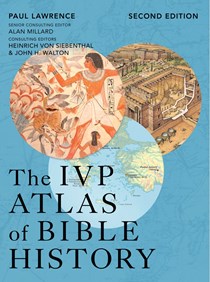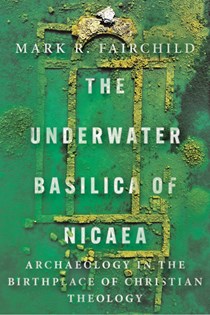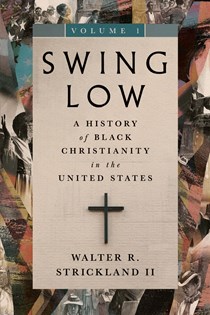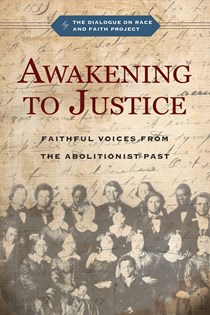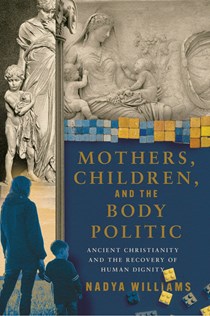History / Historical Studies
-
The Journey of Modern Theology
From Reconstruction to Deconstruction
by Roger E. Olson
Modernity has been an age of revolutions—political, scientific, industrial and philosophical. Consequently, it has also been an age of revolutions in theology, as Christians attempt to make sense of their faith in light of the cultural upheavals around them, what Walter Lippman once called the "acids of modernity." Modern theology is the result of this struggle to think responsibly about God within ...
-
Last Call for Liberty
How America's Genius for Freedom Has Become Its Greatest Threat
by Os Guinness
Logos Bookstore Association Award
World Magazine Book of the YearThe hour is critical. The American republic is suffering its gravest crisis since the Civil War. Conflicts, hostility, and incivility now threaten to tear the country apart. Competing visions have led to a dangerous moment of cultural self-destruction. This is no longer politics ...
-
In Search of Ancient Roots
The Christian Past and the Evangelical Identity Crisis
by Kenneth J. Stewart
The Gospel Coalition Book Award; Jesus Creed Book of the Year in Church History
Protestant evangelicalism is in crisis.
As evangelicals increasingly lose contact with the churches and traditions descending from the Reformation, it becomes harder to explain why one should remain committed to the Reformation in the face of perceived Protestant deficits ...
-
The IVP Atlas of Bible History
Consulting Editor A. R. Millard and John H. Walton
by Paul Lawrence
Consulting Editor Heinrich Von SiebenthalOpen Your Understanding of the World of Scripture
The story of the Bible is inextricably linked to the land. To understand biblical history, we need to understand how the people, events, and geography interacted to form that ancient world.
Spanning three thousand years of biblical history, The IVP Atlas of Bible History reveals the many fascinating ways that ...
-
The Underwater Basilica of Nicaea
Archaeology in the Birthplace of Christian Theology
by Mark R. Fairchild
A Firsthand Look at a Groundbreaking Archaeological Discovery
In 2014, aerial photography revealed a submerged structure beneath the waters of Lake Iznik, near the ancient city of Nicaea. The structure appeared to be in the shape of an ancient basilica church, with a nave, aisles, and an apse pointing to the east. The discovery was named one of the top ten archaeological discoveries ...
-
The Last Romantic
C. S. Lewis, English Literature, and Modern Theology
Hansen Lectureship Series
by Jeffrey W. Barbeau
Three Essays on C. S. Lewis and Romanticism
Many readers have heard C. S. Lewis's logical arguments for the Christian faith. Yet throughout his wide-ranging study and writing, Lewis often began with experience, intuition, and religious feeling rather than dogmatic assertions. The most profound questions of Lewis's own life, argues theologian and literary critic Jeffrey Barbeau, ...
-
Iglesia mestiza
Cinco siglos de justicia social, teología e identidad latina
by Robert Chao Romero
Translated by Jesús Escudero Nava
Foreword by Justo L. GonzálezEstá creciendo el interés, la conciencia y la demanda por el conocimiento de que la justicia social es algo que sale de la fe cristiana. Pero esto no es algo nuevo.
Por quinientos años la cultura e identidad latina han sido moldeadas por sus desafíos al statu quo religioso, socioeconómico y político, ya sea en oposición al colonialismo español, las dictaduras latinoamericanas, ...
-
Swing Low, volume 1
A History of Black Christianity in the United States
Swing Low Set
by Walter R. Strickland II
A Groundbreaking Portrait of African American Christianity
The history of African American Christianity is one of the determined faith of a people driven to pursue spiritual and social uplift for themselves and others to God's glory. Yet stories of faithful Black Christians have often been forgotten or minimized. The dynamic witness of the Black church in the United States ...
-
Awakening to Justice
Faithful Voices from the Abolitionist Past
by The Dialogue on Race and Faith Project, Jemar Tisby, Christopher P. Momany, Sègbégnon Mathieu Gnonhossou, David D. Daniels III, R. Matthew Sigler, Douglas M. Strong, Diane Leclerc, Esther Chung-Kim, Albert G. Miller, and Estrelda Y. Alexander
"O where are the sympathies of Christians for the slave and where are their exertions for their liberation? . . . It seems as if the church were asleep."
David Ingraham, 1839
In 2015, the historian Chris Momany helped discover a manuscript that had been forgotten in a storage closet at Adrian College in Michigan. He identified it as the journal of a ...
-
Mothers, Children, and the Body Politic
Ancient Christianity and the Recovery of Human Dignity
by Nadya Williams
How we talk about human life matters.
In western post-Christian society, humans are thought of less like precious image bearers and more like commodities. The canary in the coal mine of this ideological shift is often women and children, which manifests itself in the seemingly built-in disdain towards motherhood and children for their lack of production of economically valuable ...



